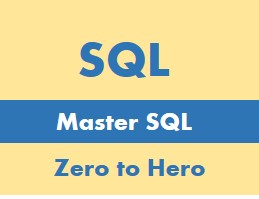


SQL ("Structured Query Language") is an ANSI Standard computer language commonly used to access data stored in databases.
SQL works with relational databases which all organize data into tables, rows, and columns which correspond to files, records and fields. Learning SQL opens a world of relational database management systems (RDBMS) to you such as:
Each RDBMS follows the ANSI Standard to a large degree and then add value adding features. This tutorial will focus on the ANSI Standard and avoid vendor specific features.
Explain how and why to master SQL.
Relational databases and SQL began in the 1970s. Dr. E.F. "Ted" of IBM is known as the father of relational databases. He described a relational model for databases in 1970. IBM worked to develop Codd's ideas and released a product named System/R in 1978.
Other companies organized and created relational database products before IBM released System/R. The first released Relational Software's product called Oracle and the second released was Relational Technology's product called Ingres. IBM then released follow up products in 1982 named SQL/DS and DB2. Oracle (now from Oracle Inc.) and DB2 continue today in advanced forms while the Ingres technology was acquired by Computer Associates.
Advertisements:
Infogoal.com is organized to help you gain mastery.
Examples may be simplified to facilitate learning.
Content is reviewed for errors but is not warranted to be 100% correct.
In order to use this site, you must read and agree to the
terms of use, privacy policy and cookie policy.
Copyright 2006-2020 by Infogoal, LLC. All Rights Reserved.
